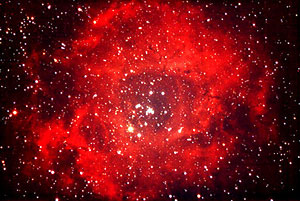
|
||
| |
New
This Week
Everything new is here.
Basics
Start here
Anglicans believe . . .
The Prayer Book
The Bible
News
News Centre
News archive
Newspapers online
Over
to you . . .
Add a site to AO
Tell us what you think
Link to AO
Resources
Resources A to Z, including
Book of Common Prayer
Education
Exchanges
Liturgy
Theology
Vacancies
Youth
and
much more ...
Worldwide
Anglicanism
Anglican Communion
In full communion
Not in the Communion
Dioceses
and Parishes
Africa
Australia
Canada
England
Europe
Ireland
Japan
New Zealand
Scotland
USA
Wales
World
Anglicans Online
Archives
Staff
Awards and Publicity
Beginnings, AO
Today
Sponsors
Many Christian churches 'round the world this Sunday followed a lectionary whose readings all focussed, laser-like, on forgiveness—an odd synchronicity following so soon after the remembrances of 11 September. So most of us this morning either listened to, or delivered, a sermon about forgiveness.
One goal of a sermon is to make us think. Perhaps the sermon writer does more thinking than the listeners; perhaps not. But this topic is hard not to think about, especially this week. Unspeakable horror: forgiveness. Purposeful death: forgiveness. Mass devastation: forgiveness. Is there anything so God awfully hard as this? Is there any command that makes being Christian so inhuman?
It would be different, wouldn't it, if forgiveness were only for the easy cases, graciously waving away the slight of a friend or obligingly overlooking an insult by a co-worker. It's the tough, bad, terrible cases that shred us. The child molesters. Serial murderers. Abusive parents. Terrorists. We can't think our way out of this one. There is very little wiggle room in this Gospel, where forgiveness is concerned. Desmond Tutu summarised crisply: there is no future without forgiveness*.
And recall the sonorous lines, with their stark condition, in the Lord's prayer: 'Forgive us our trespasses, as we forgive those who trespass against us'. Charles Williams wrote:
No word in English carries a greater possibility of terror than the little word 'as' in that clause; it is the measuring rod of the heavenly City, and the knot of the new union. But also it is the key of hell and the knife that cuts the knot of union†.
When forgiveness fails, thoughts can drift to revenge. The world's newspapers this month grumble about pending war, about the use of force. And force—whether intellectual, physical, emotional, or any other sort—is not the way for Christians to advance the claims of our religion in a pluralistic world, writes Bishop Pierre Whalon in a new essay for Anglicans Online. 'It is not in our strength but our weakness that we may speak of Christ to others'.
Forgiveness is often the last great hurdle for us, we who profess and call ourselves Christian. We can heal from some terrible wound as time passes. We can find our life returning to something resembling normal. But still there is that high holy impossible mountain range in front of us, where we are to reach a place where we can act, where we are no longer passive victims, but active forgivers. Love, as someone once wrote, is the only weapon we have. It wasn't force that overcame the darkness of the tomb.
Under the mercy ...
See you next week.

|
 |
| Cynthia
McFarland cmcf@anglicansonline.org |
Brian
Reid reid@anglicansonline.org |
Last
updated: 15 September 2002
URL: http://anglicansonline.org/
*Desmond
Tutu, No
future without forgiveness (1999)
†Charles
Williams, The
Forgiveness of Sins (1942)
